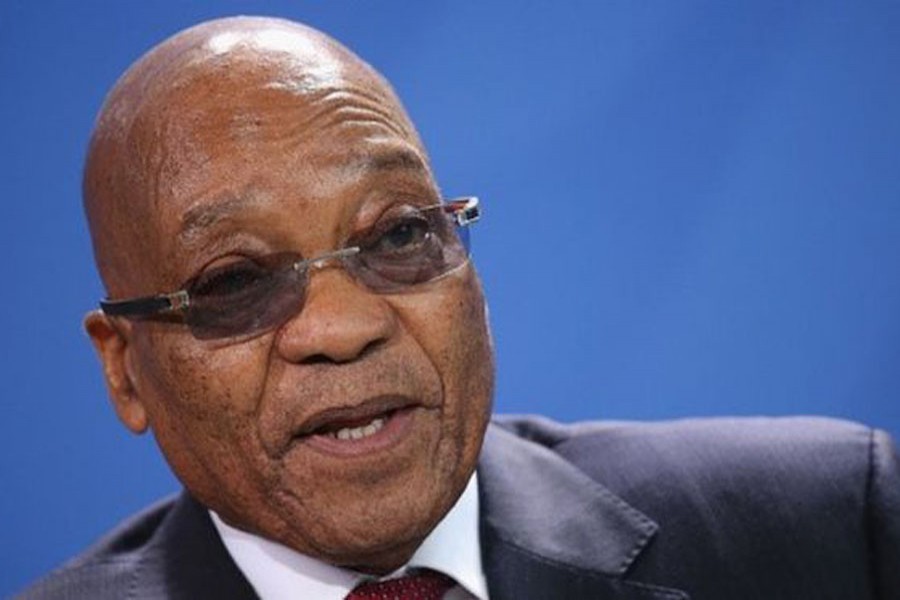South Africa's former President Jacob Zuma is due in court on corruption charges related to a $2.5 billion arms deal in the 1990s.
He will face 16 counts of corruption, racketeering, fraud and money laundering at the High Court in Durban.
Mr Zuma - who was forced from office in February - denies any wrongdoing.
His trial is likely to be a lengthy one, with a battle brewing over whether the state should keep paying Mr Zuma's legal bills.
Police are preparing for several thousand supporters of the former president who have pledged to march to the high court.
The BBC's Andrew Harding says the former president appearing in a dock is "hugely symbolic" for South Africa's young democracy. Many, he reports, will see it as an era of impunity coming to an end.
Mr Zuma was deputy president at the time of the decades-old arms deal.
His former financial advisor was found guilty and jailed in 2005 for trying to solicit bribes for the then deputy president from a French arms firm.
The issue cast a shadow over South African politics for years but charges brought against Mr Zuma were dropped by national prosecutors shortly before he successfully ran for president in 2009.
His opponents have since fought hard to have the charges reinstated; something which was made more possible once his grip on the ruling party, the African National Congress (ANC), weakened, reports BBC.
Intense pressure from the ANC led to the former president resigning two months ago. He had been told to step down or face a vote of no-confidence in parliament.
Mr Zuma's remaining supporters and some family members, believe his trial is a politically motivated witch hunt. They argue he is being targeted for backing a radical economic reform agenda.


